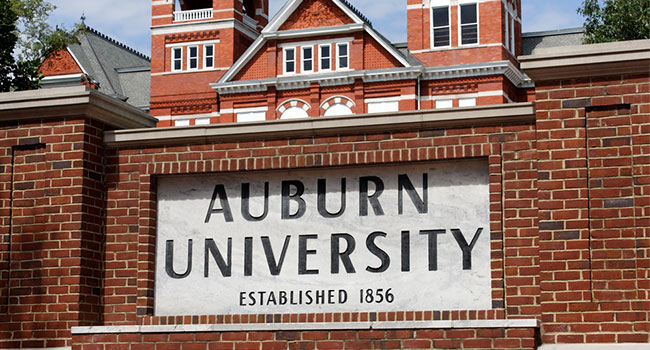
Auburn University Steps Up Transit Security
Following an incident in September, safety and security administration at Auburn University are beefing up security on campus transit.
- By Sydny Shepard
- January 17, 2018
Students returning to Auburn University campus following winter break will notice significant security changes on the campus' transit buses following an incident where a student was sexually assaulted on a nighttime transit bus four months ago.
After the incident, the university began to implement extra safety measures in an attempt to prevent a similar situation from occurring in the future such as bystander intervention training, hiring extra security personnel and live video monitoring or late-night bus routes.
“Safety has become a huge issue, especially transit safety,” university president Steven Leath said in his address at the most recent Board of Trustees meeting in November. “We’re trying to make improvements as quickly as we can. We did not take our time on this; we’ve been moving very fast.”
Auburn is requiring all First Transit employees on campus to go through Green Dot bystander training. About 7,000 other university employees and students have gone through the training and the university hopes it will be implemented into the Emerge Leadership program for freshman by Fall 2018.
In addition to the training, some safety measures are being implemented on the buses themselves. Security personnel, contracted through U.S. Security Associate, now ride on each bus.
“That company is the same company the university contracts with for private security,” said Chance Corbett, interim executive director of Campus Safety and Security. “These officers are the ones who are tasked with patrolling different areas of campus on foot. These are the same security officers who work in the library, and in the residence halls.”
At the First Transit's local office employees will monitor live video feeds from the bus cameras at night. Cameras constantly record video whenever the buses are on, said Rex Huffman, manager of transit services for the university. Cameras have been on the buses for nearly a decade, but prior to the incident in September, the live feed was only monitored sporadically.
“We think it’s important that you see First Transit and the university are taking measures,” he explained. “The university’s priority is safety, no doubt about that. Yes, we have an academic mission. But the safety of everyone is number one at the end of the day.”
About the Author
Sydny Shepard is the Executive Editor of Campus Security & Life Safety.